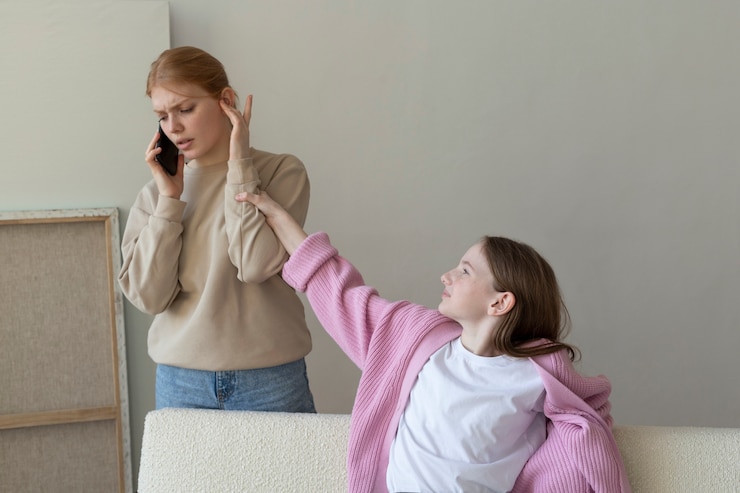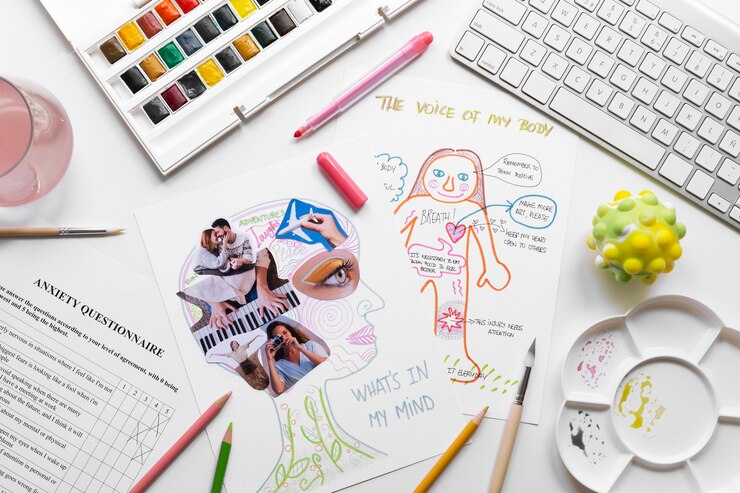
As a child and family therapist, I often hear concerns from parents, like:
– “Even at 6, my daughter still struggles with separation anxiety and insists on knowing my whereabouts around the house at all times.”
– “Bedtime is frustrating because my son can’t seem to relax his mind. He repeatedly asks the same questions but dismisses my answers.”
– “For the past six months, my daughter has been irritable and angry, and she’s not opening up about why. I feel lost.”
Recognizing anxiety in children can be tricky, and figuring out how to help them doesn’t always come naturally. As a mom of three, I see firsthand how today’s world can excessively stress our kids.
Our children grow up in a culture full of fears: fear for their safety, fear of not being the best, fear of not fitting in or failing a test, fear of not making the team, and an overarching fear that they aren’t ‘good enough.’ By the time they hit their teenage years, over 30% of them will have experienced an anxiety disorder in the U.S. This is alarming.
Currently, 1 in 8 children are diagnosed with clinical anxiety, and many more deal with daily stress. Clearly, kids today are under immense pressure. Fortunately, there are simple, research-backed strategies that you can apply to reduce your child’s anxiety right now.
Research shows that exposure to news and fictional media, like video games, movies, and TV shows, can increase fear and anxiety in children. When kids see violent or aggressive content, their brains react as if it’s real, triggering stress hormones. This is wild. If exposed to mature content that their young brains can’t fully process, they can become overwhelmed and anxious. With so many media sources available, using resources like Common Sense Media can help parents set important boundaries.
Positive thinking might sound like a cliché, but it’s incredibly effective for reducing anxiety. Your child’s thoughts in any situation shape their feelings and actions. As a parent, you can listen for negative thought patterns that may cause anxiety and help your child recognize them.
Signs of negative thinking include exaggerations, extremes (“I always…” “I never…”), or speculative phrases like “what if…” Help them challenge thoughts that lack factual basis and work together to create more balanced, positive statements.
It’s likely that both you and your child have stressful moments during the day. This is a perfect chance to practice deep breathing. Sit up straight, breathe deeply into your belly, and count to four for each inhale and exhale with a brief pause in between. This can quickly calm the body’s stress response, lowering anxiety.
Encouraging gratitude is another practical way to foster mindfulness. Spend a minute each day sharing three things you’re thankful for. Focusing on gratitude shifts attention away from anxiety, drawing your child’s thoughts to the present instead of dwelling on the past or worrying about the future.
Mindfulness is also essential to teaching children how to regulate their emotions. Talking through their feelings helps many kids process anxiety. Being available and attentive encourages them to share their thoughts and emotions without fear of criticism or lectures.
Raise emotionally intelligent children by allowing them to express their emotions without judgment. Reflect back what they share and empathize with their feelings. Use listening skills like acceptance, validation, and empathy to show your child that you are a dependable support during anxious times.
Today’s children have busier schedules than ever, but sleep often gets sacrificed. Studies indicate that lack of sleep can increase anxiety, so it’s important to know how much rest your child needs and help them get it.
Playing gives kids an opportunity to explore who they are and learn problem-solving and coping skills. These play-based skills are invaluable for managing stress and anxiety throughout life.
Spending time in nature is proven to reduce stress and anxiety, and it requires deliberate effort to prioritize it. Try engaging the whole family in outdoor activities to benefit from nature’s soothing effects.
Equipping your child with the knowledge and skills to manage anxiety and stress is a lasting gift. By taking proactive steps now to reduce anxiety, you’re enhancing their mental health for the future.
Join 30,000 other intentional parents in the Parents with Confidence weekly email and get a free 5-day email parenting course with tips on:
– Safeguarding your child’s self-esteem
– Securing your child’s cooperation
– Imparting vital future skills
– Disciplining without emotional harm
Join now and send me the course! We won’t spam you. You can unsubscribe anytime.
Other parenting articles you might find helpful:
– 10 Insights of Remarkable Parents (from a family therapist)
– 75 Calming Techniques for Kids that Work (printable)
– 5 Reasons Positive Parenting Might Not Be Working and How to Fix It
– 5 Strategies to Raise Good Listeners (without yelling or negativity)



